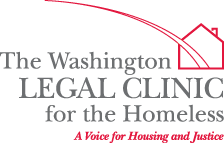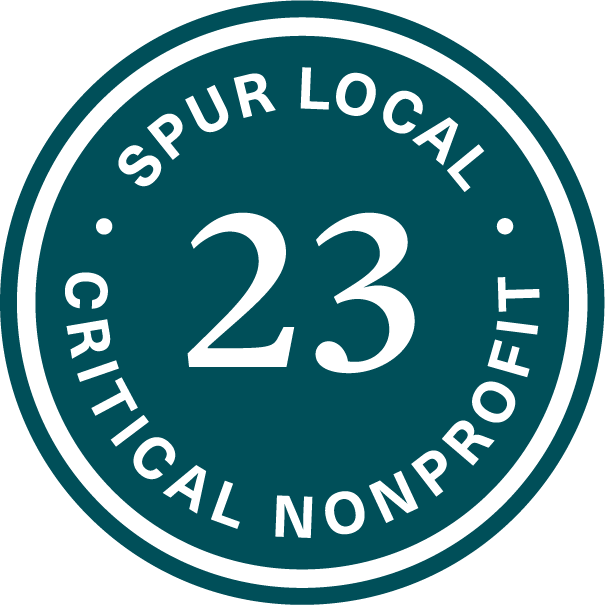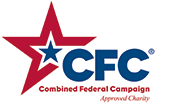The FY22 DC Budget Invests in Housing Justice
On August 3, the DC Council took its final vote on the Fiscal Year 2022 (FY22) budget, followed by the final vote on the Budget Support Act on August 10. We are pleased to report that all of the increased investments in housing that we reported here and in the below table made it into the final budget.

*With an investment of $42M through 2025, there should be sufficient funds to support later projects that come online. Therefore, we consider this “ask” fully funded at this time.
These housing investments are large and potentially transformative, and we want to take a moment to talk about their potential impact on affordable housing and homelessness in DC as well as preview some next steps for advocacy. The housing investments in DC’s FY22 budget do not exist in a vacuum — their impact on homelessness in DC will be affected by the eventual end of the eviction moratorium, whether there will be any further federal or local extensions of such moratoria, or whether DC will improve its distribution of eviction prevention resources through STAY DC.
Investments in the creation and preservation of deeply affordable housing
The Housing Production Trust Fund has record high investments, and there is enough money in the matching operating budget to ensure that the fund creates deeply affordable housing over the next few years. DC could make real progress in building affordable housing with these investments. But DC has struggled to meet its legally-required minimums for building housing for the lowest income households for years. With such large amounts of money in the fund this year and next, it is even more critical that the DC Council engages in active, regular oversight of the Department of Housing and Community Development to make sure that 50% of the fund is used to build housing for households earning between 0 and 30% of Area Median Income, as the law requires. This budget also includes $50 million for the purchase and renovation of hotels in order to create deeply affordable housing. We will be monitoring this process and will work to ensure that this investment meets the stated goal.
For the second year in a row, $50 million has been appropriated for the DC Housing Authority’s repair and renovation of public housing. Although DCHA has struggled to spend money swiftly, it has assured policymakers that it has a plan to quickly and effectively use this funding for the properties most in need of repair. During this process, the DC Council must engage in regular oversight to make sure that this funding is used efficiently. As advocates, we will continue to focus our efforts on preventing the displacement of DC residents, and ensuring the preservation of DC’s public housing units.
Investments in housing vouchers that will end homelessness for families and individuals
The most substantial increase comes in the form of housing vouchers for people experiencing homelessness. Roughly 2300 individuals experiencing “chronic homelessness” will be placed in Permanent Supportive Housing (PSH) during the FY22 fiscal year. About 1152 homeless families will get vouchers: 535 PSH, 307 Targeted Affordable Housing, and 310 tenant vouchers (from the DCHA waitlist).
For individuals, these investments are almost enough to end homelessness for every individual living in the hotels (PEP-V), the street, and low-barrier shelters. With the recent announcement that the federal government would extend funding for hotels until the end of November, DC now has a cushion of funding to transition people out of hotels and into housing, rather than forcing them back to the street or shelters when federal funding lapses. As for people living in encampments, DC can take a non-punitive, effective approach to clearing encampments—by providing housing to people living on the street. In the shelter system, DC could see much lower numbers, providing a real opportunity to improve the safety and dignity of the shelters. This increase in PSH will not only make unprecedented strides towards ending chronic homelessness but could substantially impact what homeless services look like for individuals.
For families, there is no longer any legitimate budget-based reason to threaten families with termination from Rapid Re-housing. The Department of Human Services (DHS) has not confirmed yet that families are safe from termination, but if DHS chooses to terminate them it won’t be because of funding constraints. Prior to the budget passing, DHS had stated that 1000 families in Rapid Re-housing had been in the program for over 18 months and were at risk of termination for reaching the time limit. DHS stated that they could no longer afford to give extensions to those families, as they had during the public health emergency, and that 580 of the 1000 families would get termination notices in the next few months, effective in the spring. But with enough permanent housing for 1152 families, now there is no budgetary pressure to terminate families from Rapid Re-housing. Instead, DHS can exit families from the program who have reached the time limit in the way that everyone agrees is best—into permanent, affordable housing. Our core concern with Rapid Re-housing—that arbitrary time limits cause harm to the vast majority of families who cannot afford market rate housing—has been resolved by funding enough permanent vouchers to create a secure safety net for families this year. This is the fundamental shift in resources that must happen every year in order for Rapid Re-housing to be a humane, successful program in DC.
DC’s FY22 budget season has concluded with historic investments, but the work continues!
Minimize barriers to create greater access to housing
Of course, all this potential for transformative change hinges on DHS and DCHA moving quickly and landlords renting to participants. For years, the Department of Human Services (DHS) and the coordinated entry system have viewed Permanent Supportive Housing (PSH) and Targeted Affordable Housing (TAH) through a lens of scarcity, comparing individuals to each other to determine who is most in need of a housing intervention, i.e. who scores highest on the “vulnerability index.” However, with this many available vouchers in one year, DHS and coordinated entry should develop a more streamlined prioritization process and just provide vouchers to every person who is eligible. (The Budget Support Act requires DHS to issue regulations on who is eligible for TAH (such regulations already exist for PSH) and provides some guidance for how to prioritize families who are eligible for TAH.)
DCHA is now required, through the Budget Support Act, to lower the barriers to its tenant voucher program, including PSH and TAH. (Unlike its federal voucher program, which must comply with federal regulations, the local voucher program can be modified substantially to improve accessibility and efficiency.) First, DCHA must remove any eligibility requirements that screen out applicants on the basis of criminal convictions or pending criminal legal matters. Second, DCHA must remove any requirements that screen out or tend to screen out undocumented immigrants. Finally, DCHA must review its verification requirements and allow self-attestation of eligibility factors where the applicant cannot quickly or easily acquire documents. These changes will increase access and efficiency within the voucher programs.
Once someone receives a voucher, the process of finding an apartment can be challenging. There are plenty of vacant units, but there are also plenty of landlords who discriminate against voucher holders or who have unreasonable eligibility criteria. In the last year, DC has made tremendous progress in removing housing barriers by starting to seal eviction records. However, legislation that prohibits landlords from using sealed eviction records, bolsters tenant protections, and strengthens DC’s voucher discrimination laws remains in the Housing Committee. (You can read about our support for those bills here.) It is unfortunate that a slow legislative process and lack of funding in this budget will prevent thousands of new housing applicants from enjoying those crucial protections. Still, our current Human Rights Act and Fair Criminal Records Screening Act do provide some housing protections. We, along with our legal services colleagues, stand ready to assist any applicant facing discrimination while in search of a home.
The DC budget is a moral document
We are grateful for the advocacy and support of blog readers and community members – our collective efforts to increase funding for deeply affordable housing and end homelessness were incredibly successful this year. It’s vital to keep this success in context because, as always, our work with the Fair Budget Coalition is rooted in the belief that low-income DC residents have a multitude of interrelated needs. Our clients who need housing also need things like accessible healthcare (i.e. removing Healthcare Alliance barriers) and sufficient income support (i.e. excluded worker payments), among other things. Unfortunately, this budget did not make substantial investments towards meeting those holistic needs, and DC has a lot of work to do to achieve a truly equitable budget. We continue to believe that the DC budget is a moral document. Dire circumstances, dogged advocacy, and political will combined this year to make our housing goals a reality. Thousands of DC residents will no longer experience the trauma of homelessness because of this budget. Lives will be saved because of this budget. However, the progress cannot end with this FY22 budget. We must urge our lawmakers to continue to make decisions that prioritize the lives of vulnerable and marginalized DC residents. Through a sustained commitment to reducing harm and supporting resident needs, DC can, one day, become the inclusive city that we envision and know it can be.





